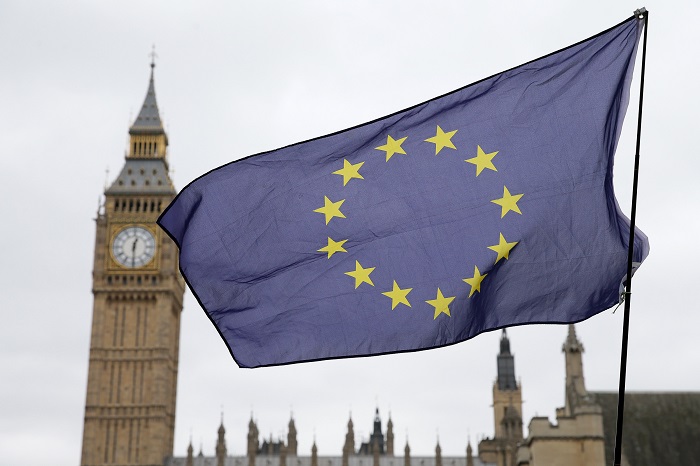UK publishes new bill to convert EU laws into British law
Published : 13 Jul 2017, 20:32
British Brexit minister David Davis published Thursday a new parliamentary bill that will convert all European laws into British law.
But opposition parties immediately attacked the proposals, indicating it will face challenges in the Westminster and devolved parliaments.
The so-called Repeal Bill is aimed at ensuring that when Britain leaves the European Union in around two years, the same laws and rules will continue to apply.
Politicians will then gradually work their way through the laws to decide which to keep and which to amend or scrap altogether.
Political commentators are already predicted that Davis and pro-Brexit government ministers will face a tough ride as the bill makes its way through the parliamentary processes.
The new bill starts by saying the European Communities Act which paved the way for Britain to join in 1973 what was then known as the Common Market, will be repealed on the day Britain leaves the EU.
The bill, full title, the European Union (Withdrawal) Bill, is a major part of the government's Brexit strategy as a way of dealing with thousands of laws and regulations passed by Brussels over the past four decades.
Davis, the Secretary of State for Exiting the EU, said Thursday the repeal bill will allow Britain to leave the EU with maximum certainty, continuity and control.
He said: "It is one of the most significant pieces of legislation that has ever passed through parliament and is a major milestone in the process of our withdrawal from the European Union.
"By working together, in the national interest, we can ensure we have a fully functioning legal system on the day we leave the European Union.
"The eyes of the country are on us and I will work with anyone to achieve this goal and shape a new future for our country."
In a commentary the Guardian newspaper said the repeal bill contains controversial new powers for ministers to tweak laws and create new institutions, where these are deemed necessary to make EU law work when it is transferred to UK law.
The Guardian adds that government ministers will be able to use powers dating back centuries and known as "Henry VIII powers" for up to two years after exit day, reflecting the government's fear that it could face a bottleneck of legislation as it battles to make the necessary changes in time.
Within minutes of the publication of the new bill, opposition parties went on the attack.
Labor's shadow Brexit secretary Keir Starmer said his party would not support the Repeal Bill in its current form, while the first ministers of the devolved parliaments in Scotland and Wales also said they would not support it in its present form.
Scotland's first minister Nicola Sturgeon and wales' first minister Carwyn Jones made their views known in a joint statement.
Meanwhile the Liberal Democrat leader in the House of Commons, Tim Farron said the bill "would be hell".
The general secretary of Britain's main workers' organization, the TUC, also attacked the proposed bill describing it as a "Downing Street power grab".
Frances O'Grady said: "The PM promised to protect all workers' rights after Brexit. But there is nothing in this bill to stop politicians shredding or watering down our rights in the future.
"Nobody voted for Brexit to make life harder for working people. That's why any deal with the EU must ensure that workers' rights in Britain don't fall behind the rest of Europe."
On proposals for Britain to be no longer subject to European Court of Justice rulings from the day when Britain leaves the EU, O'Grady said: "An early commitment to walk away from the ECJ will tie our hands in Brexit negotiations. The government should leave all options on the table, instead of creating yet more inflexible red lines."
Corbyn had an extended meeting in Brussels Thursday with the EU's chief Brexit negotiator, Michel Barnier. He traveled to Belgium with his Brexit spokesman Keir Starmer and shadow interior secretary Diana Abbot.
The Labor Party in London said Corbyn's visit signaled Labor's growing importance to the Brexit process in the wake of the last month's General Election results in which Prime Minister Theresa May lost her overall majority.
Corbyn said: "Labor is a government in waiting and we are ready to take up the responsibility for Brexit negotiations. Labor respects the referendum result and the decision to leave the European Union. But a Labor Brexit would look very different to the race-to-the-bottom tax haven backed by this Conservative Government."


